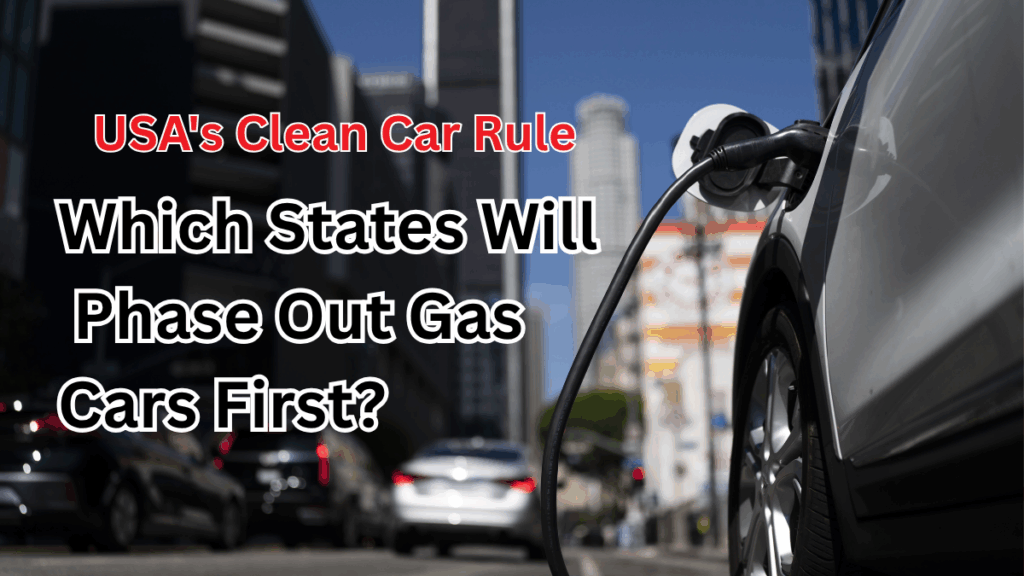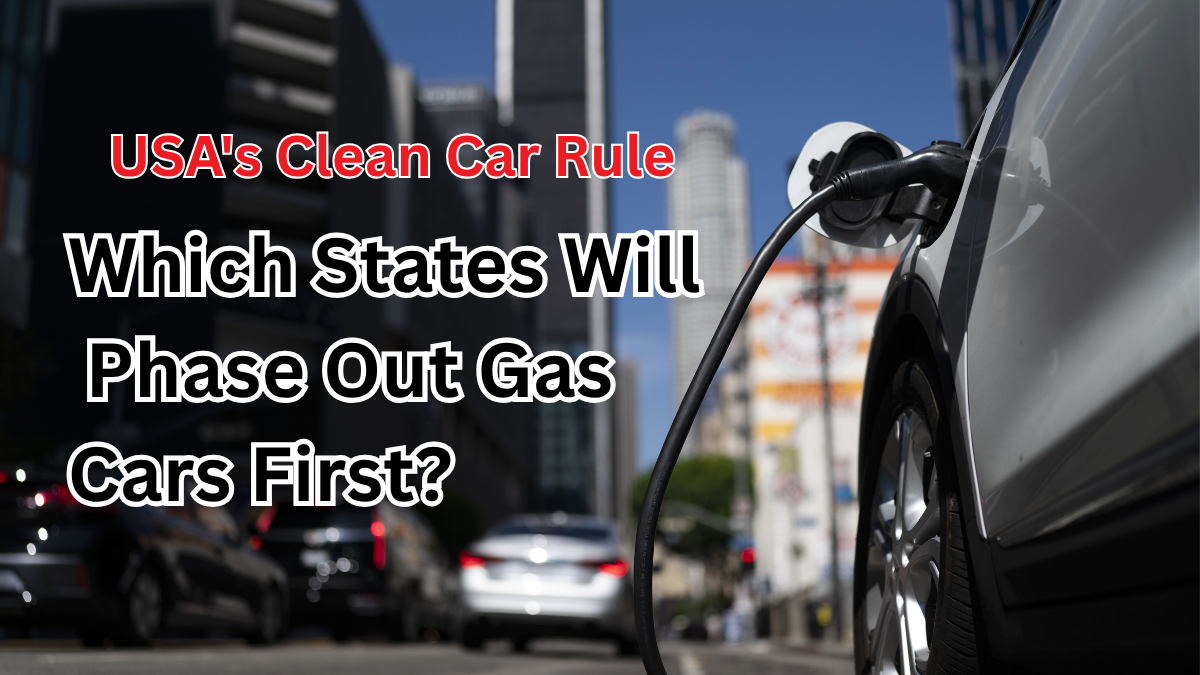As the climate crisis grows more urgent, the USA’s Clean Car Rule 2025 marks a bold shift toward sustainability. This rule, part of a broader green law initiative, aims to drastically reduce emissions and accelerate the adoption of electric vehicles. But while the federal stance is clear, each state is moving at its own pace.
Let’s explore how this electric vehicle mandate will unfold, and which states are poised to lead the way in the US gas car ban.

What Is the Clean Car Rule 2025?
The Clean Car Rule is a nationwide policy that sets stricter emissions standards and lays the groundwork for phasing out new gasoline-powered vehicle sales. It supports a cleaner, more efficient transportation sector by:
-
Tightening pollution limits on new gas vehicles
-
Encouraging a shift to electric and zero-emission vehicles
-
Supporting infrastructure development like EV charging stations
-
Enabling a state-wise rollout of compliance based on local legislation
Why This Rule Matters
The Clean Car Rule isn’t just about regulating car emissions. It’s a long-term plan to future-proof American transportation and public health. The benefits are both environmental and economic:
-
Less air pollution in cities and suburbs
-
Lower vehicle running and maintenance costs
-
Enhanced energy independence from fossil fuels
-
New job opportunities in the clean tech and EV sector
State-Wise Rollout of the US Gas Car Ban
Some states are aggressively pushing forward with the US gas car ban, while others are cautiously observing. Here’s how different states are responding to the electric vehicle mandate:
State-by-State Gas Car Phase-Out Plan
| State | Ban Year for New Gas Cars | Current Status | Electric Vehicle Mandate |
|---|---|---|---|
| California | 2035 | Fully adopted | Yes |
| New York | 2035 | Executive order passed | Yes |
| Washington | 2030 | Fastest adoption in the U.S. | Yes |
| Massachusetts | 2035 | Following California | Yes |
| Oregon | 2035 | Adopted Clean Cars II Rule | Yes |
| Colorado | 2035 | Finalizing legislation | Yes |
| Texas, Florida | TBD | No official plan yet | No |
These states are helping define the trajectory of the state-wise rollout, setting an example for others to follow under this green law framework.
What Car Buyers Should Know
The Clean Car Rule affects future car purchases, particularly for those living in progressive states. Here’s what it means for you:
-
New gas cars will be limited in states with phase-out plans by 2035
-
EV options will increase in number and affordability
-
Incentives are rising for those switching to electric—tax credits, rebates, and perks like HOV access
-
Infrastructure is expanding, making EV ownership more practical
Challenges to Implementation
Despite the promise, there are several real-world challenges tied to this major transition:
-
Limited charging networks in rural areas
-
Resistance from certain industries and political groups
-
High upfront cost of EVs (though total ownership is cheaper over time)
-
Concerns over EV range and battery longevity
Governments are addressing these issues with funding, policy support, and innovation incentives.
FAQs
Q1: Which state will ban gas cars the earliest?
Washington is leading with a 2030 deadline, making it the first in line for a full US gas car ban on new sales.
Q2: Will I still be able to drive my gas car after 2035?
Yes. These rules apply only to the sale of new gas-powered cars. You can continue using or reselling your existing vehicle.
Q3: Are used gas cars affected by this rule?
Not directly. Used gasoline vehicles can still be bought and sold, but their value may drop as demand for EVs grows.
Q4: What kind of incentives are available for electric vehicles?
Federal and state programs offer:
-
Up to $7,500 in federal tax credits
-
State-level EV purchase rebates
-
Utility discounts for home charging
-
Carpool lane access in some states
Final Thoughts
The Clean Car Rule 2025 is a landmark step toward transforming how Americans move and how the country meets its climate goals. With states adopting the electric vehicle mandate at different speeds, it’s important to stay informed about the policies in your region.
As the state-wise rollout of this green law unfolds, the message is clear: the future of driving is electric. Whether you’re buying your next car or planning long-term investments, this shift will shape your journey ahead.
Click here to learn more
